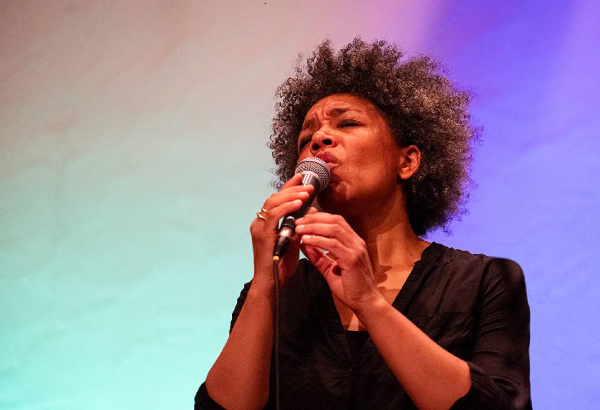Jazz interview with jazz guitarist, composer and bandleader Jason Quick. An interview by email in writing.
JazzBluesNews.com: – First let’s start with where you grew up, and what got you interested in music?
Jason Quick: – My parents got an old piano when I was 8 years old, tuned it up and starting have my sister and I take piano lessons with a family friend who taught lessons down the block. I also tried out the Trombone in fifth grade. I was not very interested in music until I started listening to Detroit rock radio, then I really wanted to play guitar. I was around 12 at that time. My parents got me an acoustic, had me take lessons and I was on my way.
JBN: – How did your sound evolve over time? What did you do to find and develop your sound?
JQ: – In my earliest days of playing into my mid 20’s, I studied music. Private lessons, high school music programs, majoring in music in university up through getting a master’s degree. I am proud of my opportunity to study music and I think it is important for many reasons but specifically I would like to point out it is important because when you study music, you are supporting your local music community. I see the differences being a young student coming up in a time when music education was encouraged and available compared to a working musician who was trying to teach and struggling to get and keep students because I believe that music education was being de-emphasized .
JBN: – What practice routine or exercise have you developed to maintain and improve your current musical ability especially pertaining to rhythm?
JQ: – Five years ago, I started practising with the metronome set at very slow bpm. Like 13 bpm. If you are working on rhythm changes, for example, between clicks is 4 bars at 248 bpm. So when it clicks again it and you are on beat 1 of say, bar 5; that means you kept 4 bars of music going in time with your internal rhythm. Just one example of many ways I work a super slow metronome click.
JBN: – How to prevent disparate influences from coloring what you’re doing?
JQ: – I do not want to prevent anything, I am looking to create music that is a part of my local culture/consciousness. I am open to influence and I like to hear what is going on in historic recordings, I want to hear what people around me are playing, I want to hear what people around me listen to so when I write something, I feel it is my expression of what I want to hear and interpret from what happens around me.
JBN: – How do you prepare before your performances to help you maintain both spiritual and musical stamina?
JQ: – When I have not played much but have a gig coming up I spend time practising 3 or 4 days before the show. Keep it loose but also focus on a few details you could improve. More about feeling your instrument and approach than about trying to accomplish anything.
There could be talk or advertising about your CD
JBN: – And how did you select the musicians who play on the album?
JQ: – We play gigs together. Zac Kreuz and I have been playing together on a regular basis since 2012. Ronquillo, I have had a musical relationship for about as long. J. was a student and later graduate of the University of Toledo Music program. I would call him to fill in for a long time and when he starting his career as a full time musician in the area, we started to play together more often. Ben Wolkins, I first played with in the late 90’s before he moved to New York City for a period of time. Eventually he moved back to the area and I started to get more gigs for a quartet and larger where before we worked primarily as a trio. Ben Maloney is of the younger generation of creative players in the area. I watched him play, then I was sitting in a lot at a jam session where he was in the house band. On the basis of those experiences I asked him to join in on 3 tunes for the recording.
JBN: – What’s the balance in music between intellect and soul?
JQ: – In the music I am presenting, I write music that I am curious about hearing, an idea, chord sequence, rhythmic phrase. Other tunes are built around a single idea. Jazz tunes for improvisation are often an idea that is built into a song structure. I like to write a twist into an idea, so it is slightly off kilter from a more 4 square interpretation. That is passed onto the approach the improviser must take in order to play the tune.
JBN: – There’s a two-way relationship between audience and artist; you’re okay with giving the people what they want?
JQ: – Many working musicians use that phrase to describe their choices made in what songs to play and I respect that and recognize that it often works. I also know there are other working musicians that present a unique sound experience and they have built their audiences around a different idea about giving the people what they want. That is where I have chosen to work from.
Interview by Simon Sargsyan












Leave a Reply